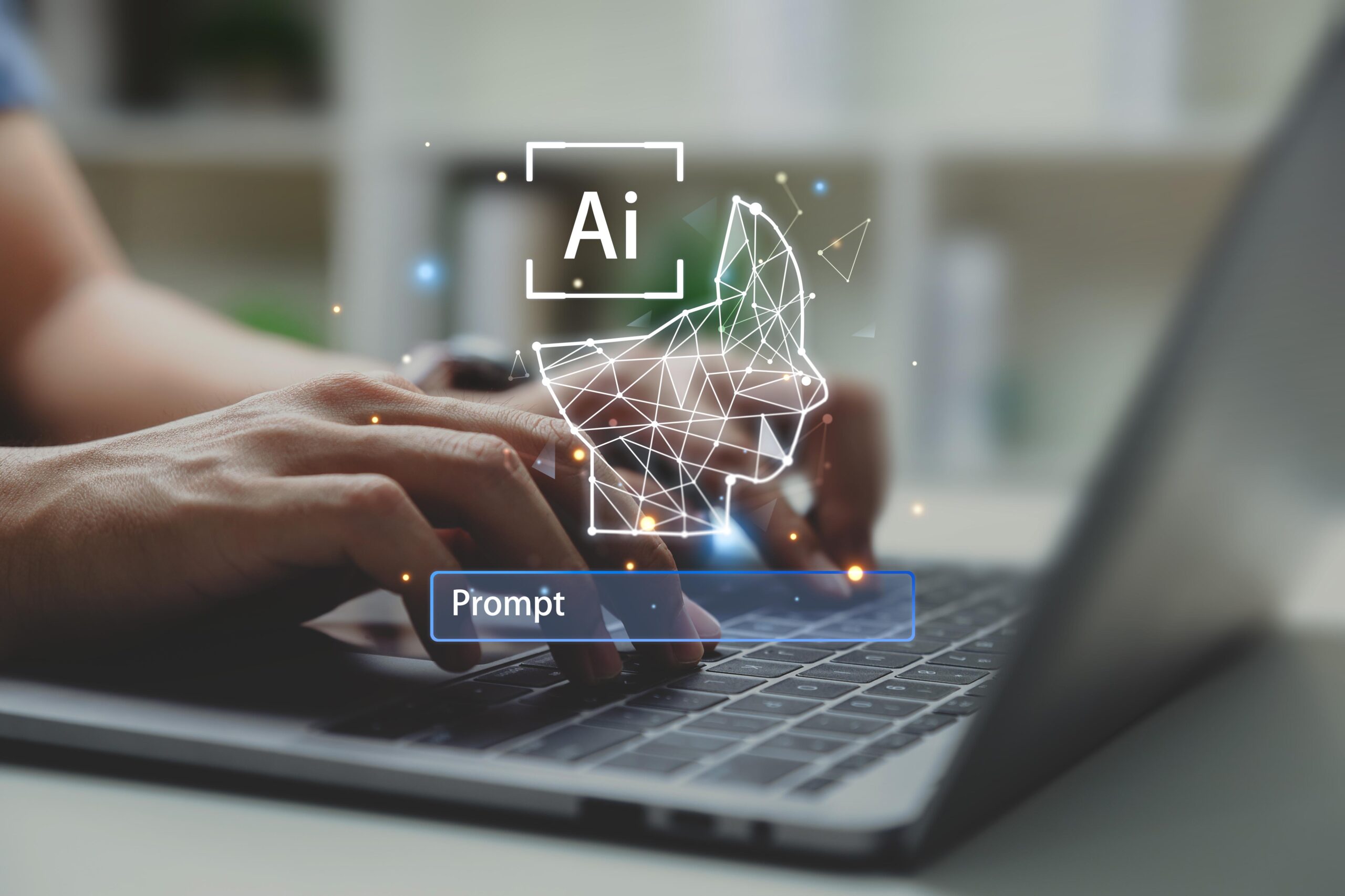Artificial intelligence (AI) is capturing the headlines right now, thanks to new consumer-friendly tools like ChatGPT, Gemini, and other interfaces. There’s great potential in these applications for both those seeking employment and those doing the hiring.
For executives, leveraging AI is all about balance. It can definitely play a role in your job search by gathering information, jumpstarting your materials, and boosting your productivity.
For the first time, AI technology can mimic how the human brain works—it can learn, reason, and even create new content
However, AI is not a silver bullet that will completely automate how you find your next opportunity. It’s essential to understand AI’s capabilities, tailor its outputs to match your authentic style, and of course, pair it with proven techniques like professional networking.
Generative AI Empowers Everyday Users
As a starting point, it’s useful to understand exactly how AI works.
Traditional AI—also called “machine learning”—uses powerful computer networks to analyze massive amounts of data, find patterns, and make predictions.
You’ll recognize AI in everyday things like:
- The recommendations in your Netflix queue
- The algorithms that screen job applications
- The voice of Siri on your iPhone
- The turn-by-turn directions and live traffic updates on Google Maps
What’s creating buzz and spurring mainstream adoption right now are next-generation capabilities called “generative AI.”
Generative AI goes beyond mere data analysis. For the first time, the technology can mimic how the human brain works. It can learn, reason, and even create new content. And, humans can direct it with simple commands called “prompts.” There’s no programming required—just asking smart questions. This makes generative AI far more accessible and vastly expands its uses.
5 Tips to Apply AI’s Power to Your Next Job Search
What does it mean for executive jobseekers? Generative AI offers another set of tools that can help you land your ideal opportunity.
Follow these recommendations for leveraging AI in your next executive job search:
1. Learn and Explore
Get started by asking generative AI a few questions. See how it operates and where it could have application in your field. Read up on its potential and its pitfalls. As more businesses and individuals embrace the technology, it’s important for all executives to have a frame of reference. Be ready to share your views on AI in interviews and networking meetings, as it relates to your role and area of expertise.
It’s important for all executives to have a viewpoint on AI that relates to your role and area of expertise
2. Practice, Practice, Practice
Getting comfortable with AI takes time. Try different user interfaces and different phrasing for your prompts. Be specific, and remember to provide your own data (such as information from your resume or a target job description) when looking for career-related content. Never share confidential data. Compare the results and refine your approach as needed.
3. Jumpstart Your Materials
Stumped on crafting your professional narrative? Need a cover letter quickly? Want to translate your career history into succinct bullet points? It takes time and effort to create high-quality job search materials. AI can accelerate the process by providing a basic first draft that you edit and refine.
Skeptical about how much “help” you need to provide AI tools? Try prompting the application to write a short bio for you, based only on publicly available information. The results can be eye-opening—particularly if you have a common name! Make sure your actual job search materials are high quality by loading good background information for AI to digest.
4. Respect AI’s Limitations
It’s vital to review and fact-check anything created by AI. A Stanford study in 2023, for example, found that over just a few months, ChatGPT’s ability to answer a simple math problem fluctuated from 98% to just 2%.
Know that the outputs you receive will only be as accurate as the publicly available information on the internet, and that performance can vary significantly over time and between applications. Free versions of generative AI tools may not include the most recent data. Be prepared for mistakes and inaccuracies, especially while these interfaces are in their infancy.
Your AI results may be eye-opening! Be prepared for mistakes and inaccuracies
5. Keep Your Own Voice Front and Center
Most importantly, never consider AI-generated material as your finished product. Always take time to tailor the raw results you receive. It’s essential that your resume, bio, cover letter, thank you emails, and LinkedIn profile reflect your skills, your authentic voice, and your unique perspective.
Recruiters, hiring managers, and talent management professionals are becoming adept at spotting AI-generated content, so making sure every piece of content reflects your distinct style is imperative.
Recruiters, Employers Investing in AI for Hiring
Jobseekers are not the only ones tapping into AI. Executive search firms and employers are also investing in AI-driven tools to optimize the hiring process. AI already screens nearly all resumes submitted through applicant tracking systems. Other uses include automating repetitive tasks, augmenting candidate matching, and improving resource allocation.
Use AI to gather information, jumpstart your materials and boost productivity, but remember that it’s not a silver bullet
AI will continue to grow in influence, however, it will not replace the human connection that’s vital for executive positions. Learn the technology, deploy it strategically to save time and improve your results, and continue forging meaningful relationships with your professional network. It will all come together to help you achieve your career goals.
A version of this content first appeared in HR Daily Advisor. Our thanks to executive consultant Lisa Marie Carlson who also contributed research, insights and expertise to this article.



